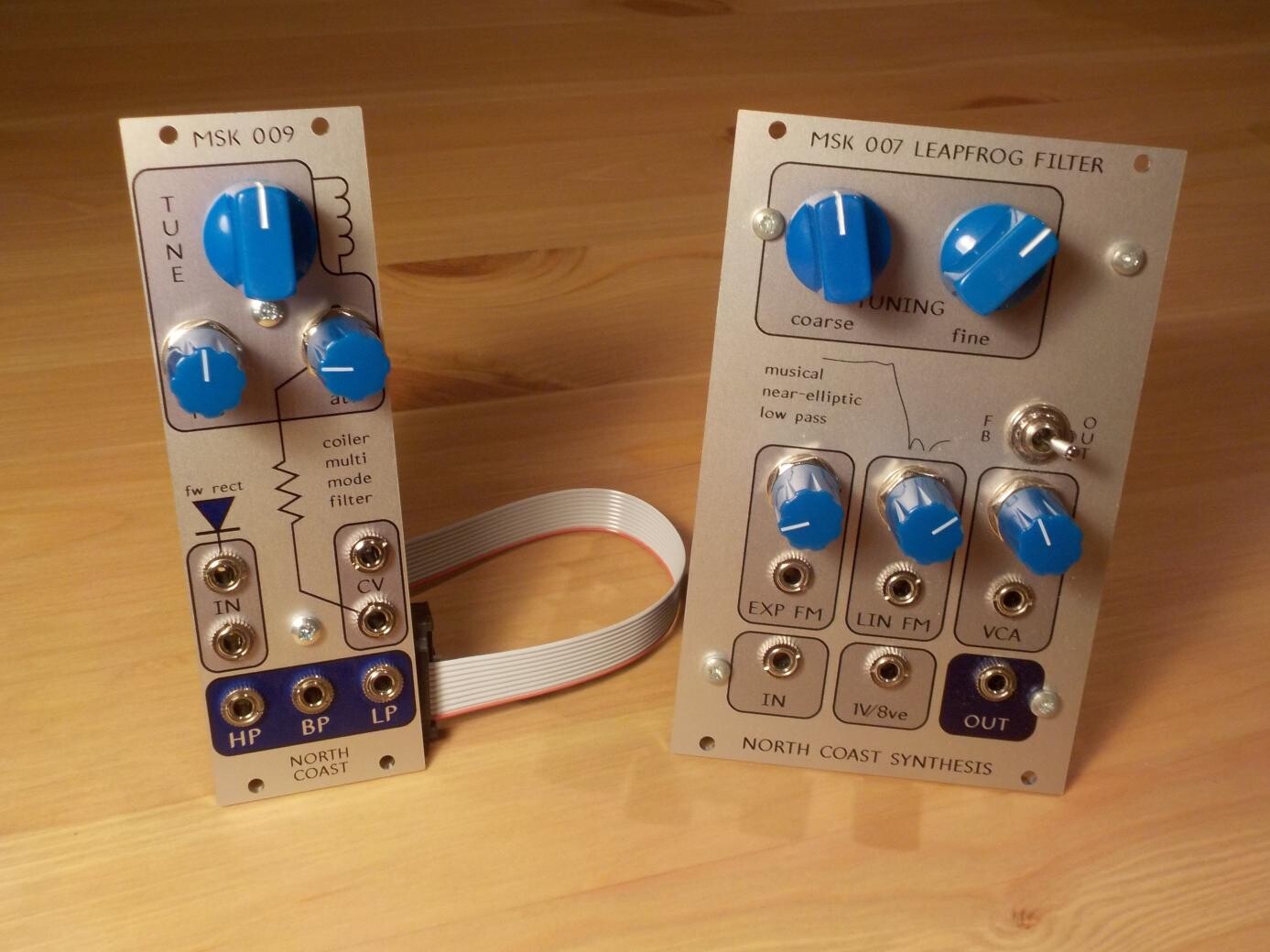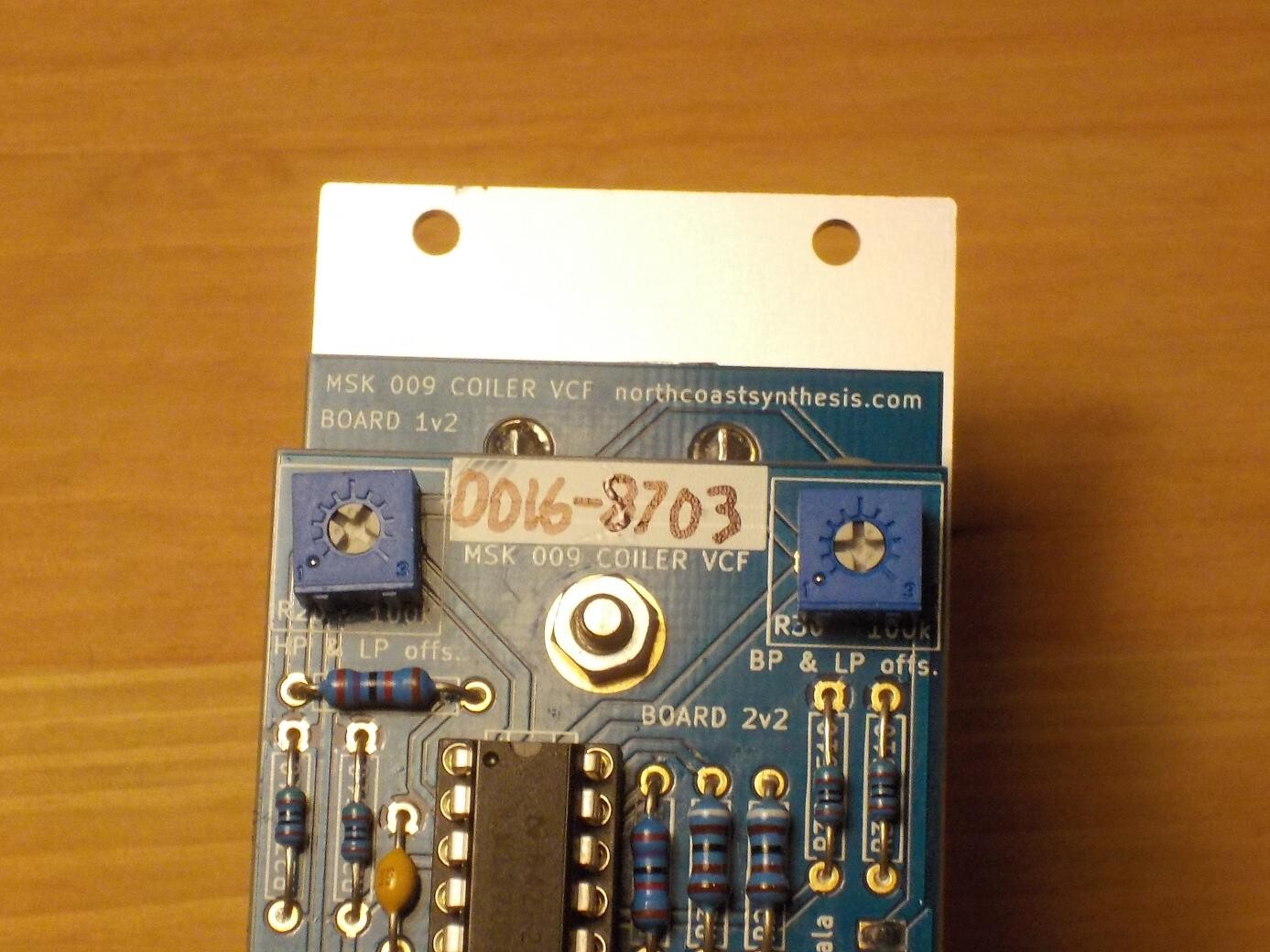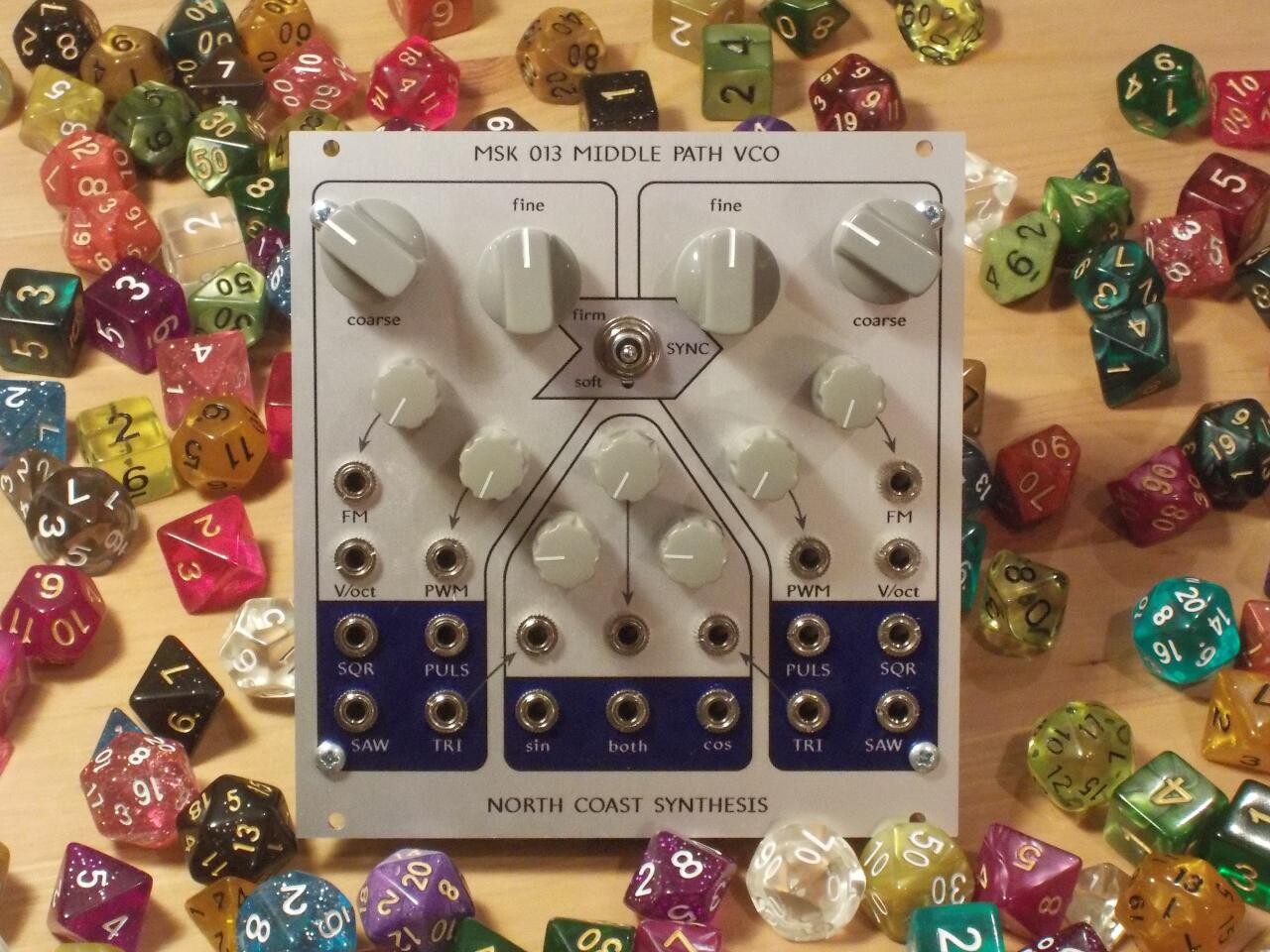New look for DIY kits
If you've been following the North Coast Synthesis email newsletter you'll probably know that I've had ongoing quality problems with the knobs I use in most of my products. The main issue is with the setscrews used to hold the knob onto a shaft: in many instances, the threads are stripped, or so weak that they immediately become stripped when tightened, so that it's not possible to attach the knob securely. The problem becomes clear as soon as the knob is installed, so although it is not good in the case of modules I sell assembled, at least with those I can recognize that the knob is bad, replace it, and be sure of shipping a good one to the customer in the finished product. It's more serious with knobs that ship unassembled in my Eurorack SDIY kits, because then it may be the customer who discovers the problem.
I discovered that the first batch of knobs was bad (with about 6% failed overall) more than a year after buying them, because the bad ones were not evenly distributed through the batch and there'd been a long delay between when I started setting up my company and when I actually had people buying products. At that point it was far too late to pursue the contractor for a refund or similar. I shipped spare grey knobs to everybody who had bought one of the kits that might have been affected, and implemented 100% testing on all knobs that come into or out of my inventory. As far as I know, nobody except me has ever actually found a bad knob in a North Coast kit. But I obviously want to make sure nobody will, so the expense of shipping out all those spares seemed appropriate. By the way, if you do have trouble with stripped threads in one of my kits, please contact me to let me know. Also note that the threads in the knobs are standard M3 threads, so in a pinch you can temporarily substitute an ordinary M3x6 machine screw such as you'd use for mounting modules in a Eurorack case. Having a machine-screw head sticking out at the back of the knob isn't cosmetically ideal, and brass or stainless steel would be preferable over common galvanized steel for corrosion reasons, but at least the knob stays on.
Because of all the trouble with the first batch, I also decided to make some changes when it came time to restock knobs, and that time is now. Starting with kits prepared in August 2019, I'm using blue knobs instead of grey for DIY kits; grey knobs will still be used on modules that ship assembled. My retail partners probably still have grey-knob kits in stock (some of them even containing the extra spares from the first round of quality fixes), but when they restock I'll be sending them kits with blue knobs. I quite like the "custom" look of the new DIY builds with the blue knobs.

My thinking when I planned this change was that the blue knobs are a standard colour for the contractor I've been dealing with (unlike the grey, which have to be custom-formulated), that should mean they can take them from their regular production which has bigger quantities and better quality control, and so I can be more confident that they will be usable. Unfortunately, that turned out not to work at all. When I got the first batch of blue knobs I found over 18% of them were defective, three times the already-unacceptable defect rate of the earlier grey ones; over 20% after factoring in the results of a second round of testing which caught a few that either had not been caught in the first round, or that maybe had been marginal and were damaged by the test procedure.
So I complained to the contractor, and after some discussion we established that many (though it turns out, not all) of the defective knobs were actually defective in the setscrew rather than the rest of the knob assembly. They shipped me a bunch of replacement setscrews and I did yet another round of testing. Of course, many of the replacement setscrews were defective too; and about a quarter of the knobs were bad in more serious ways that couldn't be salvaged by good setscrews. Meanwhile, aware of the danger in trusting these people, I'd been pursuing other sources for replacement setscrews; and I found that most people selling those want to charge as much for just a compatible screw as the price I'd been paying for the entire knob assembly. I finally did locate a source for setscrews alone at a price I considered reasonable - strangely enough being sold as replacement parts for "vape" equipment, which I guess is one of the thousands of ways they can be used but hardly the most obvious one. Whatever; that source at least did ship on time, at a decent price, and the "vape pen replacement" setscrews once I got them proved to be higher quality than the ones from the knob contractor.
Anyway, now that most of the shouting is over, I have enough knobs I'm confident are good, that if sales here don't improve significantly I'll go broke before I run out of knobs and then I won't have to worry about the next batch. If sales do improve, I'll have to look for a new source of knobs eventually because I clearly can't trust these people, and that may mean switching to a different style and another new look for assembled modules or DIY kit builds. Every knob I ship in a kit will be carefully tested, and I'll also be including spare setscrews (from the "vape pen" batch, which are the higher-quality ones). So the chances of someone getting stuck without knobs and screws that work, should now be down to near zero.
Switching the colour of knobs in SDIY kits has another benefit of making it easier to recognize kit builds in the secondary market. If people want to build my kits and sell the built results, that's great, but I want to make sure buyers know what they're getting when they buy a used module. I can't guarantee the quality of a build I didn't do, and I don't want to be on the hook for RoHS issues if for instance someone were to build a kit with lead solder and then try to sell it in Europe (which is illegal). All my manuals already have some text about this in the general warnings section:
Especially note that because we publish detailed plans and we permit third parties to build and sell modules using our plans subject to the relevant license terms, it is reasonable to expect that there will be modules on the new and used markets closely resembling ours but not built and sold by us. We may be able to help in authenticating a module of unknown provenance; contact us if you have questions of this nature.
[...]
We also sell our products to hobbyists who enjoy tinkering with and customizing electronic equipment. Modules like ours, even if originally built by us, may be quite likely to contain third-party "mods," added or deleted features, or otherwise differ from the standard specifications of our assembled modules when new. Be aware of this possibility when you buy a used module.
So the blue knobs make it a little clearer: North Coast modules with blue knobs are probably DIY builds.
The serial number is something else you can look for if you're interested in the status of a particular module. All my factory builds have eight-digit serial numbers visible on the back, two groups of four digits separated by a dash as shown here.

Obviously, nothing stops someone from making up their own serial number in that format, or even copying the serial number from a factory-built module, but it's one more clue and you can contact me with the number of a module you're interested in to check whether it matches the serial number of a module I've sold.
◀ PREV How to choose component values || Designing for adjustment NEXT ▶
